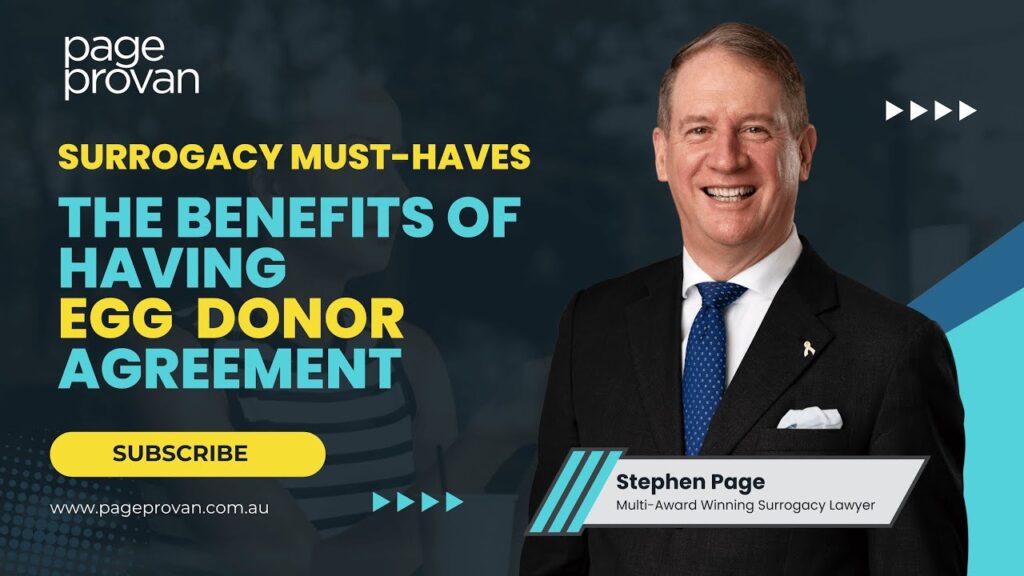Churchie’s ban: comment
Comment: Churchie has long been recognised as one of the elite schools of Queensland for boys. Certainly one of the most expensive and probably one of the most conservative.
When will those associated with these acts grow up and realise that we are in the 21st century and that everyone should be accepted for who they are? Teachers’ ultimate legal position towards students is that of being in loco parentis- in the position of parents. This is a justification used by schools and teachers to cover a whole set of school rules. If these teachers were truly loving and caring for their charges, they would accept their students for who they are, and not impose old fashioned and ill fitting notions on them.
It must be incredibly hard for teenagers to come out, especially at such a conservative school. There have been too many teen suicides in Australia, some associated with not being accepted as different. Are these teachers so indifferent to the psychological wellbeing of their students that they can’t recognise that students simply don’t come out of a cookie cutter?
Churchie’s reported act of prohibited gay students to bring their boyfriend on the basis that cultural norms and traditions demand that a girl be brought, are simply on their face unlawful.
There are both State and Federal anti-discrimination laws. The Federal laws (which are limited to things like racial discrimination and discrimination against women) do not apply. The Queensland
Anti-Discrimination Act 1991 does apply.
It is concerning that the Catholic Education Office apparently endorses the reported discrimination.
The relevant bits of the Anti-Discrimination Act
1. Section 7 of the Act prohibits discrimination on the basis of sex, lawful sexual activity, sexuality, or association with, or relation to, a person identified on the basis of any of those. In other words, on its face to prohibit boys from taking their partners to the formal might fail all or any of these, and the discrimination may not be just against those boys who cannot take their partners, but also the boys who could not go or even their relatives/friends.
2. Section 10(1) talks about what is direct discrimination: Direct discrimination on the basis of an attribute happens if a person treats, or proposes to treat, a person with an attribute less favourably than another person without the attribute is or
would be treated in circumstances that are the same or not materially different.
An example might be if Churchie were to prohibit a student bringing a gay partner to the formal.
3. Section 10(2) provides: It is not necessary that the person who discriminates considers the treatment is less favourable. So just because a teacher or school administration thinks that there is nothing wrong with the ban does not make it right.
4. Section 11 talks about what is indirect discrimination. Subsection (1) provides: Indirect discrimination on the basis of an attribute happens if a person imposes, or proposes to impose, a term—
(a) with which a person with an attribute does not or is not
able to comply; and
(b) with which a higher proportion of people without the
attribute comply or are able to comply; and
(c) that is not reasonable.
So a partner of a gay student cannot comply with the requirement to attend the formal, which requires him to be female. Is the indirect discrimination reasonable?
5. What is reasonable is set out in s.11(2): Whether a term is reasonable depends on all the relevant circumstances of the case, including, for example—
(a) the consequences of failure to comply with the term; and
(b) the cost of alternative terms; and
s 12 21 s 12
Anti-Discrimination Act 1991
(c) the financial circumstances of the person who imposes,
or proposes to impose, the term.
What can be reasonable to refuse to allow the partner to attend on the basis of tradition, or because it is a church based school, raising the issue of religion?
6. Is the service provided by the school an action covered by the Act? Section 39 provides: An educational authority must not discriminate—
(a) in any variation of the terms of a student’s enrolment; or
(b) by denying or limiting access to any benefit arising from
the enrolment that is supplied by the authority; or
(c) by excluding a student; or
(d) by treating a student unfavourably in any way in
connection with the student’s training or instruction.
The dictionary to the Act defines as “educational authority” as meaning a person or body administering an educational institution.
So Churchie would be an educational institution. Refusing to allow a student to take their gay partner would fall foul of (b) and possibly (d).
7. Is there any exemption because Churchie is a single sex school? The long and short of it is “no”. Section 41 provides: An educational authority that operates, or proposes to operate,an educational institution wholly or mainly for students of a
particular sex or religion, or who have a general or specific impairment may exclude—
(a) applicants who are not of the particular sex or religion;
or
(b) applicants who do not have a general, or the specific,
impairment.
This merely says that the school can prohibit students who attend Churchie who are not Anglican (it doesn’t) or who are girls (it does). It doesn’t say anything about the other activities of the school aside from enrolment.
8. There may be discrimination in prohibiting same sex partners from attending because in organising the formal either the school or the facility providing the formal (or both) is providing a service and providing goods (drinks and food etc). Section 46 provides: “(1) A person who supplies goods or services (whether or not for reward or profit) must not discriminate against another person—
(a) by failing to supply the goods or services; or
(b) in the terms on which goods or services are supplied; or
(c) in the way in which goods or services are supplied; or
(d) by treating the other person unfavourably in any way in
connection with the supply of goods and services.
(2) In this section, a reference to a person who supplies goods and
services does not include an association that—
(a) is established for social, literary, cultural, political,
sporting, athletic, recreational, community service or
any other similar lawful purposes; and
(b) does not carry out its purposes for the purpose of
making a profit.
Churchie would have to make sure it fell within the exemption (it probably doesn’t). The pub or function facility probably does not fall within the exemption- meaning it would indirectly discriminate by failing to allow the male partners to attend.
9. Could the ban on gay partners be based on religious grounds? No. Whilst there are specific exemptions in the Act to allow discrimination agaisnt gay teachers, ministers etc, there is no exemption for this behaviour.
10. Churchie could get an exemption if it applied to the Queensland Anti-Discrimination Tribunal. However, this would require public consultation and the submission by the Commissioner, Susan Booth.
Finally, lawful sexual activity
The Courier-Mail reported that the age of consent generally is 16, but for gays is 16. This is incorrect. The age of consent is 16, anal sex (whether heterosexual or homosexual) is not lawful until 18. Other acts, such as oral sex, are lawful from 16.
Section 208 of the Criminal Code provides in part:
(1) Any person who—
(a) sodomises a person under 18 years; or
(b) permits a male person under 18 years to sodomise him
or her; …commits a crime.
Section 210 of the Criminal Code provides in part:
(1) Any person who—
(a) unlawfully and indecently deals with a child under the
age of 16 years; or
(b) unlawfully procures a child under the age of 16 years to
commit an indecent act; or
(c) unlawfully permits himself or herself to be indecently
dealt with by a child under the age of 16 years; or
(d) wilfully and unlawfully exposes a child under the age of
16 years to an indecent act by the offender or any other
person; or
(e) without legitimate reason, wilfully exposes a child
under the age of 16 years to any indecent object or any
indecent film, videotape, audiotape, picture, photograph
or printed or written matter; or
(f) without legitimate reason, takes any indecent
photograph or records, by means of any device, any
indecent visual image of a child under the age of 16
years;
is guilty of an indictable offence.
Section 215 of the Criminal Code provides in part:
Any person who has or attempts to have unlawful carnal
knowledge with or of a child under the age of 16 years is
guilty of an indictable offence….In this section—
carnal knowledge does not include sodomy.
Section 218A of the Code provides in part:
Any adult who uses electronic communication with intent
to—
(a) procure a person under the age of 16 years, or a person
the adult believes is under the age of 16 years, to engage
in a sexual act, either in Queensland or elsewhere; or
(b) expose, without legitimate reason, a person under the
age of 16 years, or a person the adult believes is under
the age of 16 years, to any indecent matter,7 either in
Queensland or elsewhere;
commits a crime.
Complaint under Commonwealth Sex Discrimination Act
This cannot be brought at the same time as that under the Queensland Act.
A similar scheme applies to the Queensland Act. The key test is whether there has been “sex discrimination”.
This is defined as:
For the purposes of this Act, a person (in this subsection referred to as the discriminator ) discriminates against another person (in this subsection referred to as the aggrieved person ) on the ground of the sex of the aggrieved person if, by reason of:
(a) the sex of the aggrieved person;
(b) a characteristic that appertains generally to persons of the sex of the aggrieved person; or
(c) a characteristic that is generally imputed to persons of the sex of the aggrieved person;
the discriminator treats the aggrieved person less favourably than, in circumstances that are the same or are not materially different, the discriminator treats or would treat a person of the opposite sex….
For the purposes of this Act, a person (the discriminator) discriminates against another person (the aggrieved person ) on the ground of the sex of the aggrieved person if the discriminator imposes, or proposes to impose, a condition, requirement or practice that has, or is likely to have, the effect of disadvantaging persons of the same sex as the aggrieved person.
A refusal to allow the gay partner of a student to attend the formal appears on its face to be discriminating against that partner by virtue of their sex.
The discrimination can occur in the provision of goods and services, and is prohibited in the administration of Commonwealth funded programs, such as the funding of schools.
However, the Commonwealth Act has a large letout clause, not seen in the Queensland Act: there is an exemption for “any other act or practice of a body established for religious purposes, being an act or practice that conforms to the doctrines, tenets or beliefs of that religion or is necessary to avoid injury to the religious susceptibilities of adherents of that religion”.
Other exemptions under that Act may also apply.
There have been many comments on the Courier-Mail webpage, including by current and former Churchie students.












